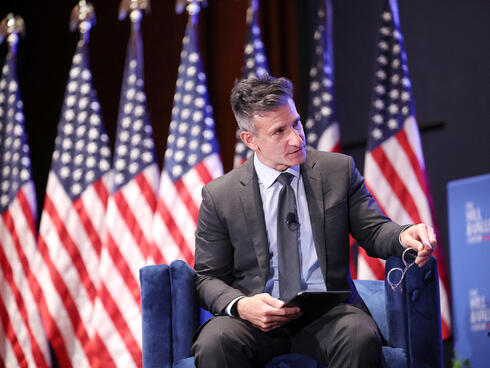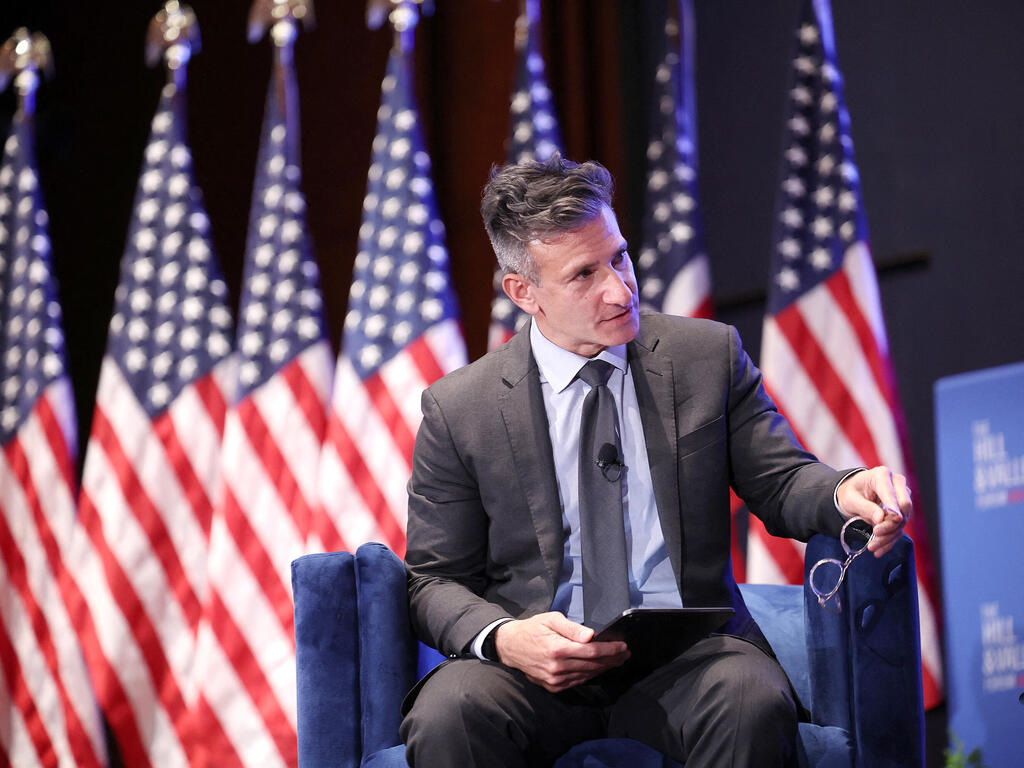
“Despite disgusting descriptions of the IDF, the world still wants Israeli tech”: Lux’s Josh Wolfe on global demand for defense innovation
In an exclusive with Calcalist, the Lux Capital co-founder explains why wartime Israel has become the envy of the world’s security establishment.
"The whole world sees Israel fighting an existential war when the whole world is against it, but it was precisely during this period that Israel became more than ever the envy of the world, and especially of the security establishment,” says Josh Wolfe, co-founding partner of Lux Capital, in an exclusive interview with Calcalist. “Everyone saw what the Iron Dome was doing, the Arrow system in action, and how the Iranian missile attack in April was repelled. No one said, ‘They were lucky.’ They said, ‘I want that too.’”
Lux Capital, which manages $5 billion, focuses on deep technologies. In Israel, the fund has zeroed in on defense tech, making its first investments after October 7. “The tools being developed here are not only critical on a regional scale, but also relevant to conflicts involving Russia and Ukraine, China and Taiwan, and even countries in Africa,” Wolfe says. “The world today is not a safe place, and brilliant people can help make it safer. This is a pivotal moment for Israel. U.S. venture capital firms are now competing to invest in Israeli defense tech.”
Wolfe was scheduled to be in Israel on a work visit, partly at the invitation of Protego Ventures, a new fund founded by Litel Leshem and Lee Moser modeled on Lux that has already raised $70 million to focus on defense tech. But a wave of Houthi missile attacks forced him to cancel. A devout supporter of Israel, Wolfe is Jewish and had his bar mitzvah in Jerusalem, he explains the cancellation with characteristic humor: “I’m not afraid of the Houthis. I’m afraid of my wife, and she forbade me from flying,” he laughs. Still, he plans to visit his extended family in Israel this summer.
“We’re considering a permanent presence in Israel”
Wolfe is a prominent figure in U.S. tech and policy circles. Beyond his venture capital role, he lectures at institutions like Harvard, Yale, MIT, Cornell, and Columbia, advises the White House on emerging technologies, and writes regularly for Forbes. He began his career in investment banking on Wall Street after earning an economics degree from Cornell.
Despite being openly pro-Israel, Lux Capital made no investments in the country until late 2023. Its first deal came in 2024, when it joined Sequoia in backing Kela, a startup founded by Israeli defense veterans. Kela has already raised $100 million across multiple rounds, with Sequoia fully underwriting the first. Lux joined in the second round while Sequoia’s funds were still untouched. Since then, the two funds have injected tens of millions more into a company developing military operating systems. According to Wolfe, this is just the beginning.
He also reveals that Lux has quietly invested in another stealth defense startup, as well as in Majestic Labs AI, a company founded by Israeli Dr. Ofer Shacham, a former senior executive at Meta, Google, and Nvidia, and a globally respected expert in artificial intelligence. Like others in the field, Majestic Labs is currently keeping a low profile.
Why do so many Israeli defense startups operate in stealth mode?
“You don’t want to attract competition before you’ve made enough progress, and you also don’t want to overpromise and underdeliver,” Wolfe says.
Are you planning a permanent operation in Israel?
“We’re open to establishing a permanent office here,” Wolfe says. “In the meantime, we’re visiting more frequently.”
How did your fund’s limited partners react to the decision to invest in Israel, especially during wartime?
“We invested in these companies because they’re Israeli. not despite it,” Wolfe says. “What we’ve discovered here since October 7 only deepened our interest. I’m certain we’ll continue to invest not only in defense, but also in cyber, biotech, semiconductors, and AI, in other words, in all the verticals that Lux focuses on globally.”
Wolfe adds that interest from investors has soared. “Some of our LPs have even asked to invest directly in Israeli defense tech alongside us. They see it not just as a financial opportunity, but as something meaningful, like investing in cancer research. The goal is to reduce human suffering. Demand is so strong that we’ve raised an additional $200 million fund dedicated entirely to the defense sector.”
Do you worry this is a short-lived wartime bubble? Many in VC still see defense as a high-risk, long-cycle play.
“It’s true that the most dangerous phrase in investing is, ‘This time it’s different.’ But I believe this time, it really is. Defense tech is here to stay and will only expand globally. People are realizing that solving existential threats is more important than building the next social app or game.”
“We don’t invest in gaming, e-commerce, or edtech,” Wolfe adds. “But we’ve already invested over $1 billion in defense tech, in Europe, Japan, and systems that operate in the air, space, and undersea. As in any sector, money will flood in, and some of it will be lost on weaker companies. But the best ones will endure.”
Wolfe cites Anduril as proof. Lux backed the company when it was founded in 2017. Not all partners supported the deal, but today Anduril is reportedly raising at a $28 billion valuation, after previously raising $1.5 billion at a $14 billion valuation less than a year ago. Originally dismissed as a long shot, Anduril is now a flagship example of startup success in defense.
Founded by Palmer Luckey, creator of Oculus VR, which he sold to Facebook for $2 billion at age 22, Anduril develops autonomous surveillance systems for militaries, including drones and UAVs. It has won multiple billion-dollar contracts with the U.S. military. Wolfe recalls: “I was on stage with Peter Thiel at a major forum full of generals and defense officials, and Palmer walked in wearing a Hawaiian shirt and sandals, maybe even Tevas. People laughed. But as they say: first they laugh at you, then they fight you, then they join you. A lot of those generals have since submitted resumes to Anduril.”
“Israel’s Kela will be a billion-dollar company”
Lux has also brought on heavyweight advisors, such as Brett McGurk, a veteran U.S. diplomat who coordinated the fight against ISIS under President Trump and later advised President Biden on the Middle East.
Do you see the Israeli companies in which you have invested reaching such proportions?
"Attitudes change over time, this happened with Anduril. The chances of a startup company winning tenders were zero, but Anduril decided to use the money from investors to build a complete product and show it to military personnel to make them want it. It was very bold and risky, but it broke the ceiling and also changed the sales processes in the industry. All the experts in the defense industry said that startup companies have no chance of competing with the big players, but today they are actually setting the tone. This will be the case with Israeli companies as well, and Kela will be a billion-dollar company, because it has all the ingredients, from the team, to the technology, to the connections. Successes like Anduril and Kela attract many more talented founders to the field."
Should Israeli defense tech startups immediately go global, or first work locally?
"In this field, it is better to work with the IDF or with the DDR&D (Directorate of Defence Research & Development)," Wolfe says. “Only then, when you can see the change that the systems are causing on the battlefield, should you enter the global market. Despite the frequent and exaggerated use of disgusting descriptions of the IDF these days in the world, the whole world still wants Israeli technology."















